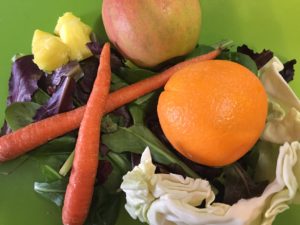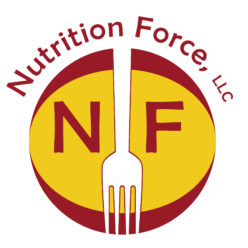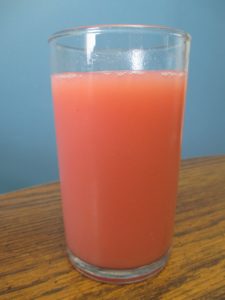
Detox Diets are a popular diet that claim to get rid of toxins in your body by eating or drinking a lot of ‘non-toxic’ foods. Usually, these diets promote eating fruits, vegetables, nuts, and protein. Detox diets can refer to toxins as refined sugar, coffee, alcohol, caffeine, dairy, red meat and gluten to name a few, our body needs to get rid of by detoxing our colon. The idea of kick starting your health by detoxing your body may sound appealing, but there is no evidence to back “detoxing” and it can be dangerous for some groups of people.
Did you know our bodies have a built-in process for getting rid of things it doesn’t need or want? Detoxification happens in the body naturally, and it happens no matter what we eat. The liver and kidneys are very effective at eliminating toxins from our body. Healthy eating, sleep, and exercise help they body’s natural detox system to work optimally.
So, what’s the difference between ‘detoxing’ and eating healthy foods as part of a regular diet?
A lot of detox diets give the idea that eating ‘clean’ for a short time period will make up for whatever you were eating for a long period of time. But wouldn’t it be better to make healthier choices most of the time instead of going back and forth between ‘detoxing’ and possible unhealthy eating habits? The answer is yes! Choosing healthy options like the fruits, vegetables, and lean protein, that many detox diets recommend, is something that doesn’t have to be limited to a few days or weeks. Eating the foods detox diets don’t allow is ok too in moderation.
Some groups of people, including pregnant women, people with chronic illnesses such as kidney or heart disease, those with weakened immune systems, and young children are at increased risk if they follow extreme eating plans. These groups of people should avoid any type of very restrictive diet.
If you want to support your body’s natural detoxification, here are some tips:
- Drink water. Bodies need water to work correctly, and detoxification runs more smoothly when our bodies have plenty of water.
- Make sure you are getting enough fiber by eating foods like fruits, vegetables, and whole grains.
- Some detox programs suggest waiting long periods of time between eating, but this can be risky for some people. Going too long without food can even cause problems in your natural detoxification process, so it’s important to keep a healthy diet.
- Eat your fruit and vegetables!
- Consume adequate protein to help maintain adequate levels of glutathione.
- Eat fermented foods, such as kefir, kimchi, or sauerkraut, to help feed the bacteria in your gut.
The bottom line…detox diets are at best unnecessary and at worst possibly harmful.

 Are you thinking of juicing as part of your health and fitness goals?
Are you thinking of juicing as part of your health and fitness goals?